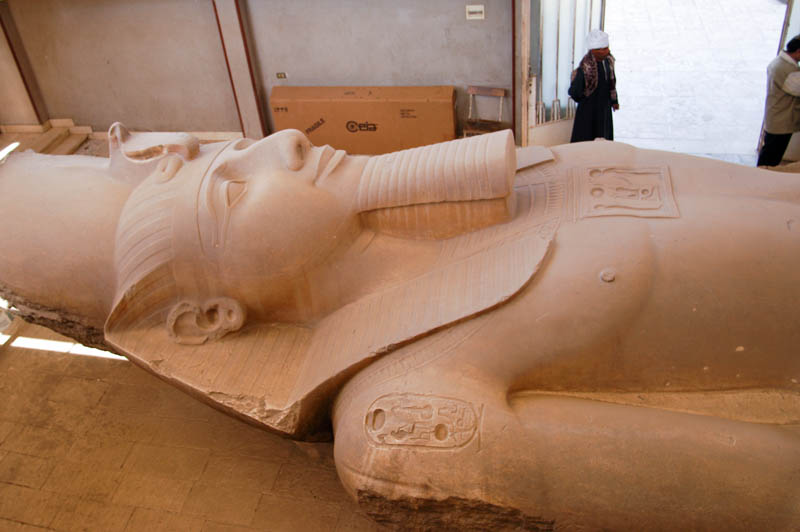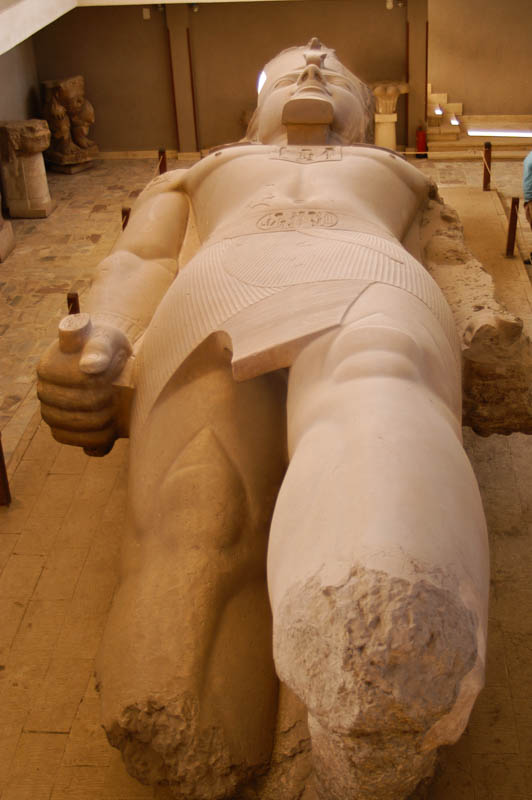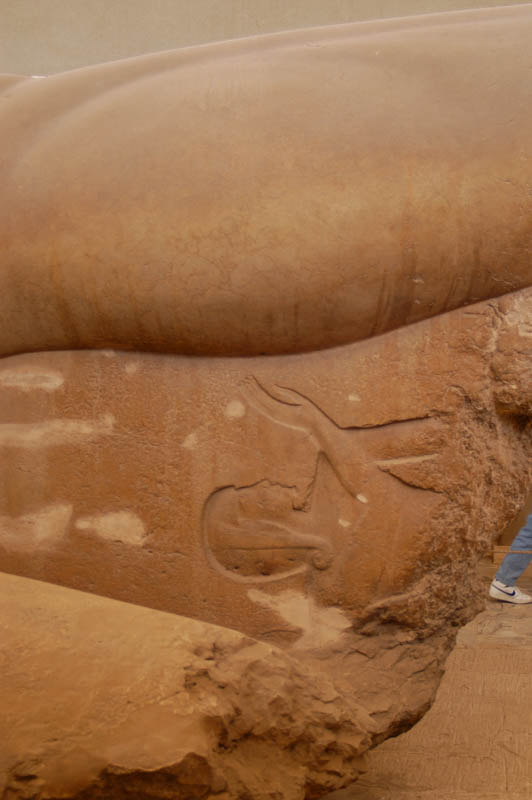If you aren’t familiar with Ramesses II — Ramesses the Great — before you go to Egypt, you will be heartily sick of him afterwards! No pharaoh before or after embarked on such a building plan, with temples, statues, inscriptions, and other monuments from one end of the Nile to the other.

It almost seems as if Ramesses was determined to be remembered by sheer volume of his work, if not the importance of it. His name is everywhere, oftentimes inscribed over the top of other pharaohs, and his name added to their statues when his own sculptors couldn’t finish them fast enough.
This colossus is one of a pair — the other (a replica, of the original, I believe) stands in front of the Midan Ramses train station in Cairo — and was discovered in 1820. They were probably meant to stand at the gates of a monumental temple to Ptah, the patron deity of Memphis.

The statue here is cut off at the knees, but it still an impressive sight laying on its back in a concrete shelter. The fineness of the carvings, and the sheer size of the thing are impressive up close.
